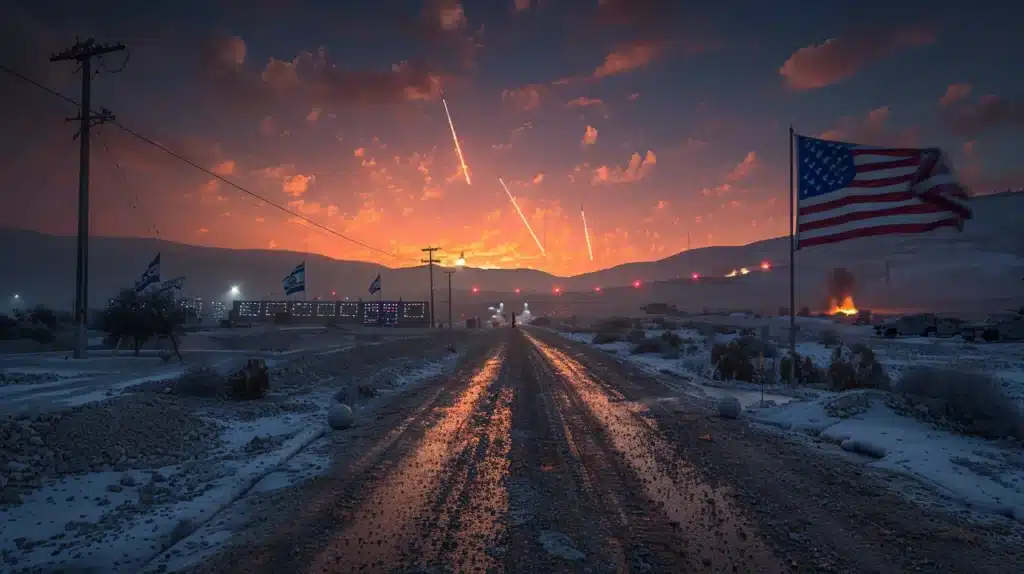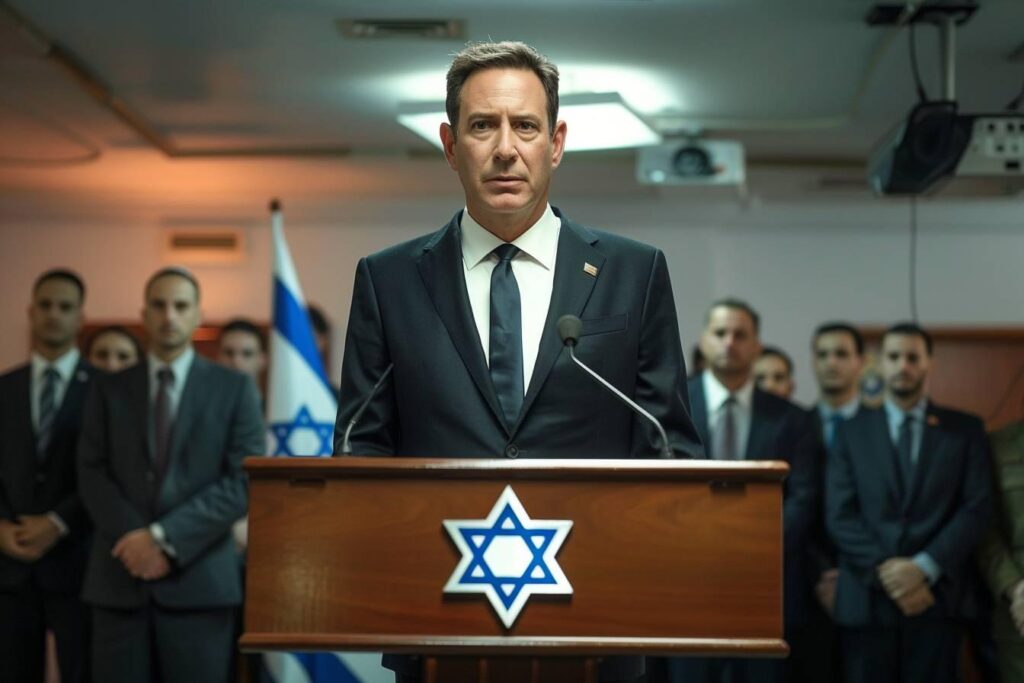Resilience and Solidarity: The Jewish Community’s Response to Recent Attacks
In the wake of a harrowing missile attack launched by Iran targeting Israel, the global Jewish community has once again demonstrated an unparalleled resilience and solidarity. The attack, involving approximately 200 ballistic missiles, marks a significant escalation in regional tensions but resulted in minimal damage due to Israel’s robust defense systems and the timely support from allies like the United States.
The Immediate Impact and Response
Despite the potential for devastation, the swift response by Israeli Defense Forces (IDF), aided significantly by U.S. military coordination, ensured that the damage remained minimal. This event underscores not only the persistent threats faced by Israel but also highlights the advanced preparedness of its defense mechanisms.
The role of U.S. support was crucial. According to reports, two U.S. destroyers in the Eastern Mediterranean were involved, launching interceptors at the incoming missiles. This cooperation exemplifies the strategic partnership between Israel and the United States, aimed at maintaining stability and security in a region fraught with conflict.
Community Reaction and Support
The Jewish communities worldwide reacted with a blend of relief and renewed vigilance. Synagogues, community centers, and families followed the events closely, organizing prayer gatherings and solidarity meetings to support those directly affected by the attacks.
One such gathering took place at a community center in New York City, where members of the Jewish community came together to show their support for Israel. Sarah Goldstein, a participant at the event, shared her feelings:
“Every time Israel is under attack, it feels like an attack on all of us, wherever we are. Tonight, we stand together to pray for peace and strength for our brothers and sisters in Israel.”
Historical Context and Continued Threats
The Jewish community’s resilience can be attributed in part to its long history of facing and overcoming adversity. From historical exiles and pogroms to modern-day terrorism and geopolitical conflicts, the fabric of Jewish life is woven with stories of survival and resistance.
This latest attack serves as a stark reminder of the ongoing threats that Israel faces from its neighbors. Iran’s direct involvement in launching missiles from its territory rather than through proxy groups marks a significant escalation that concerns many about what might follow.
Educational Initiatives and Community Resilience
In response to these continual threats, Jewish communities globally have not only bolstered security measures but also invested heavily in educational initiatives that promote understanding and readiness among their youth.
- Emergency Preparedness Workshops: Many communities now offer programs that teach emergency preparedness, first aid, and crisis management.
- History Lessons: Educational curriculums are increasingly including comprehensive modules on Israeli history and geopolitics to ensure that younger generations understand the context of these conflicts.
- Cultural Exchange Programs: To build bridges of understanding and peace, numerous exchange programs with other communities around the world have been initiated.
Looking Ahead: Paths to Peace
The quest for peace remains a central tenet of Jewish faith and cultural identity. Leaders within the community emphasize this aspect repeatedly while discussing responses to such attacks.
Rabbi David Rosenberg, a prominent figure in interfaith dialogue, advocates for a balanced approach:
“While we must defend ourselves and remain vigilant against threats, we must also engage tirelessly in diplomacy and dialogue with our neighbors. True security comes from peace, which can only be achieved through mutual understanding and respect.”
Global Support for Israel
The international reaction has largely been supportive of Israel’s right to defend itself from external threats. However, there are calls for all parties involved to seek a de-escalation in order to avoid further loss of life and instability in the region.
The United Nations has urged restraint and diplomatic engagement, while several countries have offered to mediate talks between Iran and Israel if conditions permit.
Conclusion: Unity in Adversity
The recent attacks on Israel have once again tested the resilience and unity of the Jewish community worldwide. Through collective prayers, educational efforts, and unwavering support for peace initiatives, they continue to navigate these challenging times with hope and solidarity.
The strength of this community lies not just in its ability to defend itself but also in its enduring commitment to fostering peace. As they move forward, their shared history of overcoming adversity fuels their collective resolve to secure a peaceful future for generations to come.



